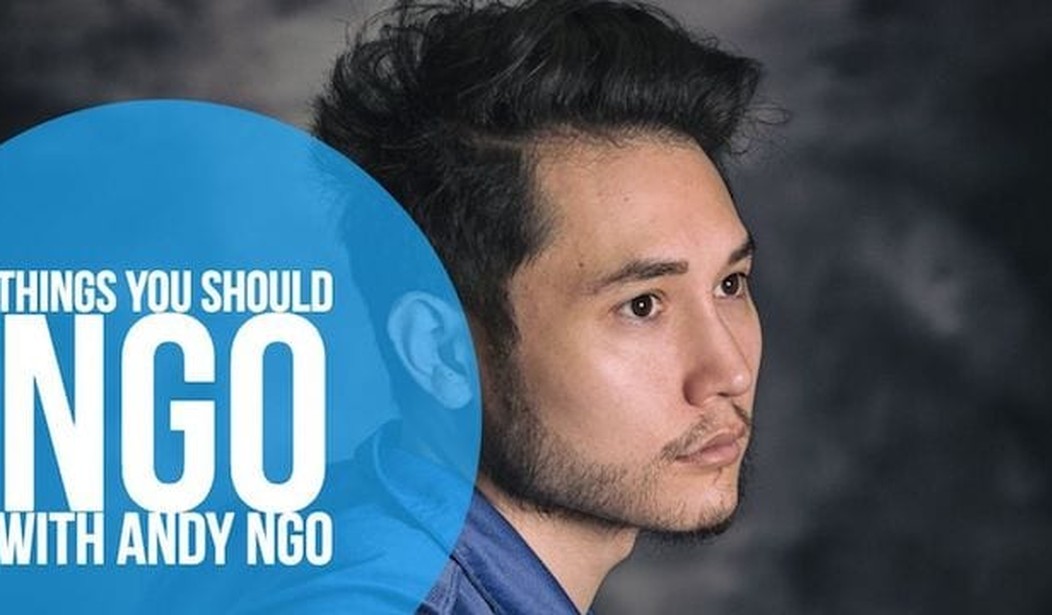Andy Ngo made his name being one of the few people who would actually embed himself into Antifa crowds when they went out to cause trouble. He became infamous in those circles and that came with threats and actual violence. To be sure, Ngo has suffered much by being the target of the domestic terrorist organization. Even anyone sympathetic to Ngo becomes targets for cancellation themselves.
As my colleague, Kira Davis, reported on Monday, the music/podcast platform SoundCloud decided it was time to ban Andy Ngo. Two very odd things stick out about it. For one, Ngo hadn’t uploaded to the platform in over a year. What’s more, the “Trust & Safety Team” never notified Ngo of the impending ban, nor gave him any specific reason as to why he was banned. Instead, it thrust a long list of things SoundCloud doesn’t like happening on their platform.
These things include content “that is abusive, libelous, defamatory, pornographic or obscene, that promotes or incites violence, terrorism, illegal acts, or hatred on the grounds of race, ethnicity, cultural identity, religious belief, disability, gender, identity or sexual orientation, or is otherwise objectionable in SoundCloud’s reasonable discretion.”
Over the course of the years, I’ve seen social media sites use similar tactics when banning conservatives. The site doesn’t pinpoint the exact thing you did that broke its terms of service and instead throws around nebulous words that they can shape and morph to fit your action, an action that, often enough, doesn’t go far enough to actually break the rules. What it generally is, is a way to silence you when you said or did something that was getting attention and was making the left look bad. That, or it made someone mad on their Trust & Safety team, and they abused their power and punished the person for speaking in ways they didn’t agree with.
We don’t have to speculate. We know this happens. They’ve admitted it on camera.
But Ngo’s case seemed odder than others. It wasn’t a spur-of-the-moment thing. He hadn’t touched the platform in over a year. This means that someone had to have specifically thought about Ngo after all this time and banned his profile.
Could it have been an algorithm brought on by a bunch of people submitting reports about him? It’s possible, but the nature of Ngo’s ban and the lack of information around it seems like he was a target from the inside. Someone wanted him banned but didn’t want to come up with a concrete reason why.
It reeks of demonstration. Ngo isn’t just a reporter, he’s an anti-Antifa journalist. They could have banned anyone. It’s not like there aren’t other conservatives on the platform speaking their mind. Ngo is a specific case and there aren’t a lot of journalists who do what he does. Banning him feels more like a statement than it does rule enforcement.
Also, consider the fact that Ngo’s name has come up recently thanks to Mumford and Son’s now-former banjo player, Winston Marshall, withdrew from the band after he complimented Ngo’s book about Antifa publicly. There is attention on him right now, and if you want to make people aware of where you stand on things, then now would be a good time to make that statement.
So we take timing, attention, name recognition, Ngo’s primary subject of reporting, and the typical leftist social media pattern of nebulous reasoning, and you have a strong case for Ngo’s banning by SoundCloud to be a message to America.
“We’re running SoundCloud,” is the message and it’s a message coming straight from the hard-left. Combined with the fact that almost every social media platform shares this sentiment, it’s one more place that makes the message concrete. They own the internet and they want you to know that.















Join the conversation as a VIP Member